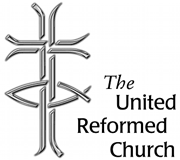The United Reformed Church (URC) occupies a unique position within the landscape of British Christianity, serving as a testament to the historical complexities of faith and ecclesial governance in the United Kingdom. Founded in 1972 through the union of the Congregational Church in England and Wales and the Presbyterian Church of England, the URC stands as a vibrant embodiment of the Reformation’s enduring legacy. It invigorates the spiritual journey of its adherents, inviting them to engage deeply with the Bible and theology, while simultaneously grounding their practice in societal transformation.
The roots of the United Reformed Church can be traced back to the fervent awakening of the European Reformation in the 16th century. Figures such as Martin Luther and John Calvin catalyzed a paradigm shift that reverberated across Christendom, challenging the dominance of the Roman Catholic Church and advocating for reform. Within the British Isles, these theological currents found fertile soil, most notably in Scotland and England, which would eventually give rise to various expressions of Protestantism, including Puritanism and Congregationalism.
Congregationalists emphasized the autonomy of individual congregations, advocating for a church model where local communities could govern themselves without hierarchical constraints. This notion was rooted in their interpretation of scripture, particularly passages that underline the priesthood of all believers. The United Reformed Church inherits this democratic ethos, affirming that every member’s voice is vital in ecclesiastical decision-making processes and theological discourse.
On the other side of the historical narrative lies Presbyterianism, with its systems of governance characterized by a connection of local churches through a series of councils—known as synods and presbyteries. The Presbyterians held a strong commitment to doctrine and order, aspects that were deemed essential for a healthy church. Merging these diverse traditions was no simple task; however, the resulting synthesis has fostered a hospitable environment for both evangelical and liberal theological perspectives.
Theological reflection within the United Reformed Church is robust and dynamic. Drawing upon a spectrum of theological resources, including both Reformed and liberal theological traditions, the URC engages critically and creatively with contemporary issues. Gay and lesbian rights, environmental stewardship, and social justice are just a few examples of concerns that the church has addressed in its mission and outreach. This reflects a commitment to living out the Gospel in a multifaceted society, and there is an inherent understanding that faith must resonate with the lived experiences of individuals.
One of the distinguishing features of the United Reformed Church is its emphasis on worship. The Church encourages thoughtful and meaningful worship experiences, often blending traditional hymns with contemporary music. Services are marked by a profound sense of communal engagement, allowing worshipers to participate actively rather than being mere passive observers. This ethos of participation invites individuals into a deeper relationship with God and with each other, fostering an inclusive and supportive community.
Furthermore, the URC’s approach to education is both comprehensive and inclusive. Sunday Schools, youth groups, and adult learning programs serve as foundational components in nurturing the faith of its members across generations. These educational opportunities not only instill knowledge of scripture but also emphasize the importance of critical thinking and dialogue. The church’s commitment to lifelong learning embodies the Reformation ideal that knowledge and faith are inextricably intertwined.
In addition to its internal life, the United Reformed Church has made commendable strides in ecumenism. Rendering itself open to dialogue and cooperation with other Christian denominations, the URC strives to promote unity among the fractured body of Christ. This commitment to ecumenical engagement originates from a theological conviction that underlines the call of Christians to exemplify love and unity amidst doctrinal diversity.
However, like any institution, the United Reformed Church faces challenges that warrant critical examination. The decline in church attendance and the secularization of society raises poignant questions about the church’s relevance in contemporary life. How can a tradition steeped in history adapt to serve a changing demographic landscape? The URC grapples with these inquiries thoughtfully and earnestly, seeking innovative ways to engage a younger generation while remaining true to its theological heritage.
In amidst this shifting landscape, the United Reformed Church remains firm in its pursuit of justice and advocacy, championing causes that reflect Christ’s love and compassion for the marginalized. It speaks out against social injustices, including poverty, inequality, and discrimination, manifesting a faith that transcends mere belief and is expressed in transformative actions.
Ultimately, the United Reformed Church serves as a microcosm of the broader Christian journey, echoing the Reformation’s call to continual renewal and regeneration. By promoting autonomy and communal decision-making, embracing inclusivity, and engaging in profound theological inquiry, the URC displays a vibrant and resilient faith. For those seeking to explore Christianity through a lens that marries tradition with contemporary challenges, the United Reformed Church presents an inviting and thought-provoking perspective.
In a world increasingly marked by fragmentation, the United Reformed Church embodies the possibility of unity birthed from diversity. The heritage it carries is a testament to the ongoing process of reformation in both the individual and the corporate church. As one journeys alongside this particular tradition, there exists the promise of a renewed understanding of what it means to be the church in the 21st century—ever reexamining, ever reforming, and ever committed to embodying the love of Christ.



